"Andrew has done a fantastic job for OCIMF and can safely claim (as can prior Directors) that he is leaving the organisation in a better place than when he came into it. My commitment is to do the same thing and I hope I can truly make that claim in three years’ time."
Director's Log
It is with great pleasure and a sense of excitement that I write my very first Director’s Log for the OCIMF newsletter.
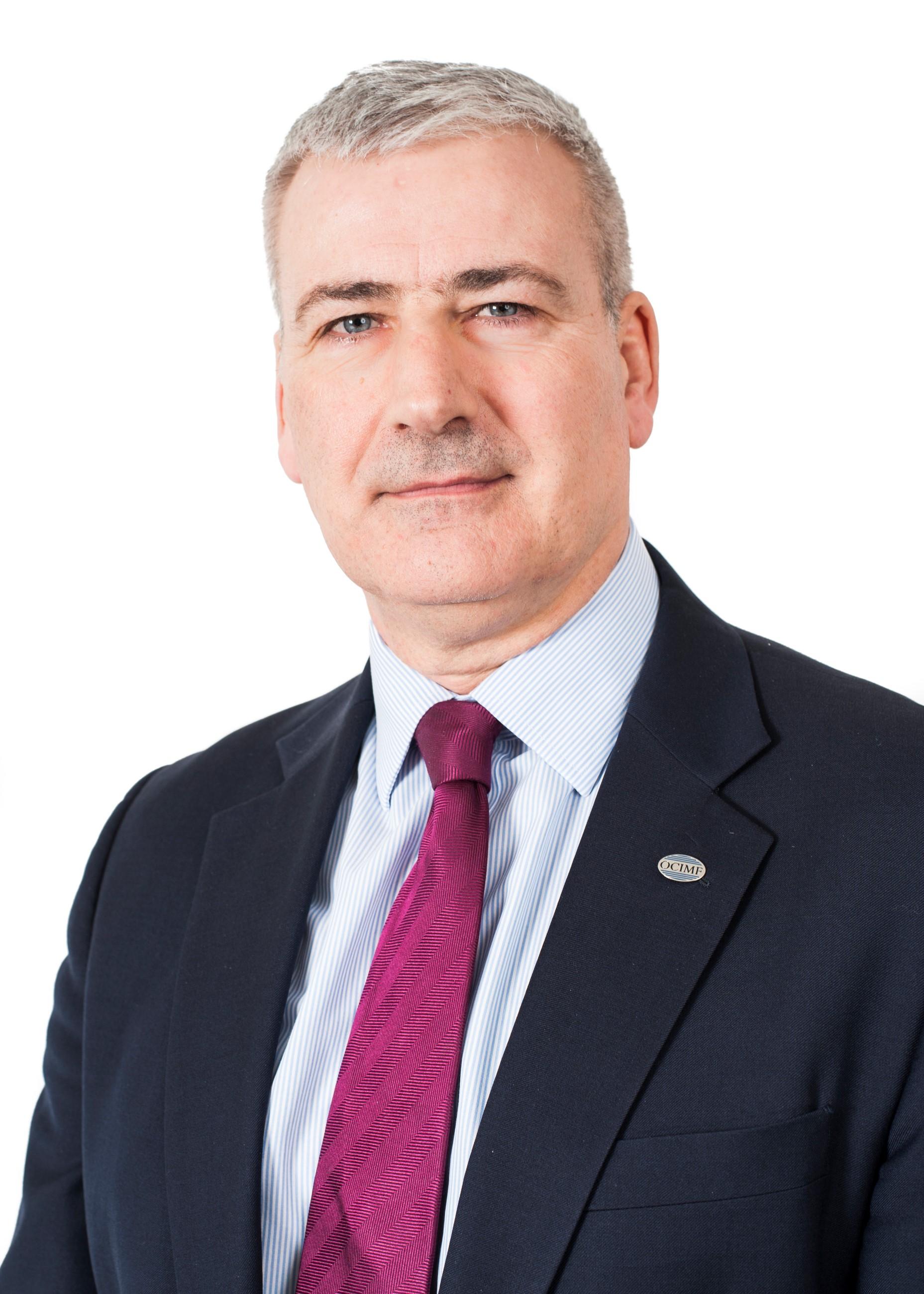
I took over the role from Andrew Cassels at our Executive Committee (ExCom) meeting in Tokyo. As you may know, I have been with the Secretariat for two years already in the role of Senior Technical Adviser. My first task is to thank Andrew publicly for his leadership during that time and for the gentle and gradual initiation into Director responsibilities. Andrew has done a fantastic job for OCIMF and can safely claim (as can prior Directors) that he is leaving the organisation in a better place than when he came into it. My commitment is to do the same thing and I hope I can truly make that claim in three years’ time.
The last six months or so have seen many organisational changes at OCIMF and we continue to see changes in the industry as well, whether they be regulatory or simply improvement from within. Industry change is not new – it’s something that we have dealt with successfully over the years. However, I do believe the changes we are going through now are more challenging and more wide-ranging than in years gone by. On the regulatory side, the current hot topics are preparing for the global sulphur cap on marine fuels, closely followed by emission reduction efforts. On the self-improvement side, I believe our biggest challenge is understanding and communicating practical advice through our programmes and publications on how to reduce incidents impacted by human factors. However, where there are challenges, there are also opportunities, and OCIMF will continue with its objectives to improve safety, security and environmental issues.
On a more short-term note, I am happy to announce the publication of the Mooring Equipment Guidelines, Fourth Edition (MEG4) on 28 June. I am particularly proud of MEG4 as it had just kicked off before I joined the Secretariat and I have been involved throughout. I can also announce the release of three projects in which OCIMF has been in collaboration with industry organisations, also available 28 June: Global Counter Piracy Guidance; BMP5: Best Management Practices to Deter Piracy and Enhance Maritime Security in the Red Sea, Gulf of Aden, Indian Ocean and the Arabian Sea; and Maritime Global Security, a one-stop shop website for ship security information. You can read more about these topics in the newsletter below.
The Vessel Inspection Programme (VIP) is one of our major projects and one which we aim to complete in 2020. You can read more about this important project in a separate article below.
I look forward to working with you all over the next three years.

Rob Drysdale
Director OCIMF
Do you have news that you'd like to share with our readers? If so email
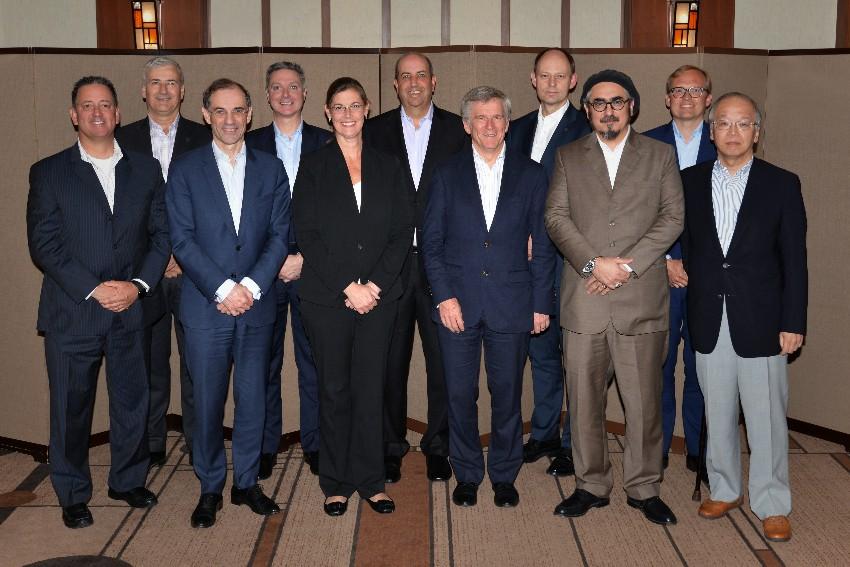

MEG4 published
OCIMF is proud to announce the release of the Mooring Equipment Guidelines, Fourth Edition (MEG4) on 28 June.
This flagship OCIMF publication establishes recommended minimum requirements that help ship designers, terminal designers, ship operators and mooring line manufacturers improve the design, performance and safety of mooring systems.
This fourth edition addresses questions raised by readers since the third edition was published in 2005. The technical content has been thoroughly reviewed and updated and written in an easy-to-understand format. The new edition also takes a human-centred design approach to mooring arrangements and increases focus on the use and understanding of mooring lines and tails.
Key updates in MEG4
- Updated and expanded guidance for the purchasing, testing, management and retirement of mooring lines and tails.
- New tools to help operators manage equipment and lines from design to retirement: the Line Management Plan (LMP) and Mooring System Management Plan (MSMP).
- New chapters on: human factors; berth design and fittings; ship/shore interface and alternative mooring technology.
- A new appendix: Guidelines for the purchasing and testing of mooring lines and tails.
- New terminology to describe the strength of mooring lines and equipment.
- Updated wind and drag coefficients.
Website
The publication is supported by a website, which introduces new terminology in MEG4 and addresses frequently asked questions.
MEG4 is the result of a multi-disciplinary working group representing OCIMF members, various shipping trade organisations, mooring line manufacturers, equipment suppliers and shipyards. We would like to thank everybody involved for their hard work and collaboration.
Buy Mooring Equipment Guidelines, Fourth Edition now
Vessel Inspection Programme project
OCIMF has set up a project called the Vessel Inspection Programme (VIP).
The project will review the current Ship Inspection Report Programme (SIRE) and design an enhanced vessel inspection programme that will continue to improve safety and environmental performance for the next few decades.
SIRE is one of OCIMF’s most significant safety and pollution prevention initiatives, and has gained industry-wide acceptance and participation. Since SIRE’s introduction, however, the industry has changed considerably. The enhanced programme will carry through key SIRE elements, but will also integrate new technology and strengthen inspection tools and governance processes, and include human factors and risk-based approaches to equipment and systems. OCIMF aims to complete the VIP project by 2020.
Any questions can be sent direct to the VIP Project Adviser David George (
BMP5 and Global Counter Piracy Guidance released
OCIMF has worked with other industry shipping organisations, with military support, on a new website that launched on 28 June at Maritime Global Security.
The website provides comprehensive maritime security guidance to companies and mariners, as well as links to other useful maritime and military security resources.
The aim is to ease access for companies and seafarers to maritime security related information and guidance. Central to the website are new best practice guides to help companies and mariners risk assess voyages and mitigate against external threats to their safety. These are covered in three publications:
- Global Counter Piracy Guidance for Companies, Masters and Seafarers is a new publication containing guidance on piracy and armed robbery that can be used by mariners around the world.
- BMP5: Best Management Practices to Deter Piracy and Enhance Maritime Safety in the Red Sea, Gulf of Aden, Indian Ocean and the Arabian Sea updates BMP4 and contains guidance for region-specific threats.
- The third edition of the Guidelines for Owners, Operators and Masters for protection against piracy and armed robbery in the Gulf of Guinea region is also provided.
All three publications are free to download from the website and free printed copies of Global Counter Piracy Guidance and BMP5 will be available soon; details to follow in future OCIMF newsletters.
Download Global Counter Piracy Guidance

OCIMF Annual Report 2018
The Annual Report covers the full extent of OCIMF activities throughout 2017.
It includes a review of the year from the Chairman and outgoing Director; updates on OCIMF membership and Secretariat; key achievements from OCIMF committees, focus groups and working groups; new developments and statistics across the range of OCIMF programmes, including SIRE, OVID and MTIS; and information on new and forthcoming publications.
Regional Marine Forums
Asia Pacific Regional Marine Forum
The first Asia Pacific Regional Marine Forum was held on 14 June in Tokyo, Japan, the day after OCIMF’s ExCom meeting. The forum was well supported by more than 75 representatives including regional members from Japan, Singapore and Australia; shipping and terminal operators; the Japanese Coast Guard and Maritime Bureau; Class Societies; marine insurance organisations and equipment manufacturers.
The presenters were asked questions on the Mooring Equipment Guidelines update; OCIMF programmes and their use by members, vetting departments and shipping operators; piracy and cyber security and lessons learned.
Presenters came from Idemitsu Tanker Co Ltd; Teekay Marine Singapore Ltd; Ampol Management Services and MMS Co Lts. Special thanks to the PIMA Secretariat who greatly helped with organising the event.
Europe and Africa Regional Marine Forum
The Europe and Africa Regional Marine Forum took place on 19 June in Rome, Italy. More than 80 people participated, including regional members from Italy, France and the United Kingdom; shipping and terminal operators; the Italian Coast Guard and Maritime Accident Investigation Bureau; Class Societies and INTERTANKO Secretariat members.
Questions were raised about the MAIB presentation on the Vessel Zarga incident; the Mooring Equipment Guidelines update; Guidelines for Offshore Tanker Operations; OCIMF programmes and lessons learned.
Thanks to all presenters from MAIB; Bluewater; SBM Offshore; ENI; Minerva Marine Inc; Herbert Engineering Corp; LR; the Italian Coast Guard and INTERTANKO. Special thanks to OCIMF members, ENI, the INTERTANKO Secretariat and members, and the Europe and Africa Regional Marine Forum Champion for their help in organising the event.
Details of both agendas, speaker bios, photos from the events and copies of presentations will be available shortly on the OCIMF website. Forum attendees will be asked for feedback to help develop next year’s forums.
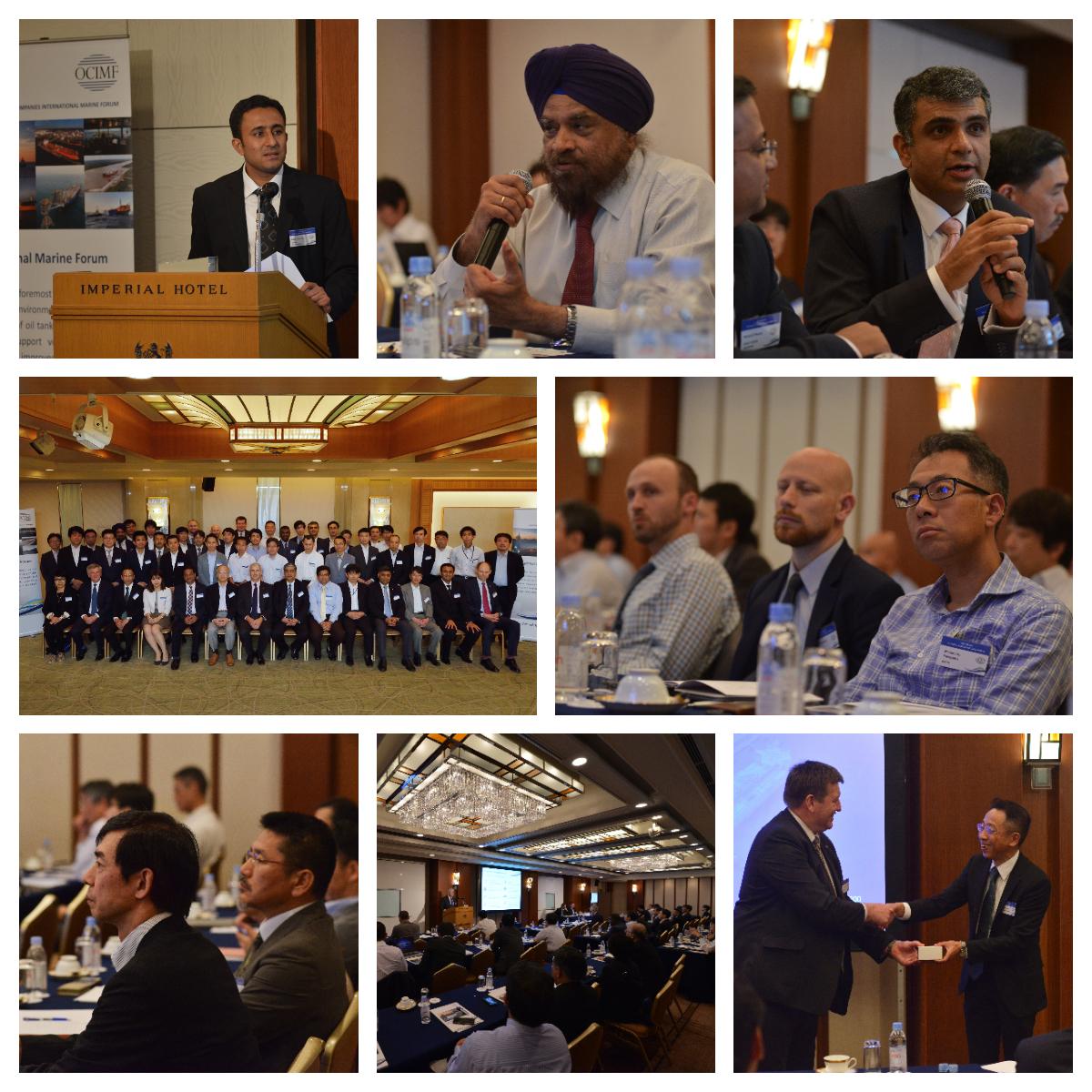
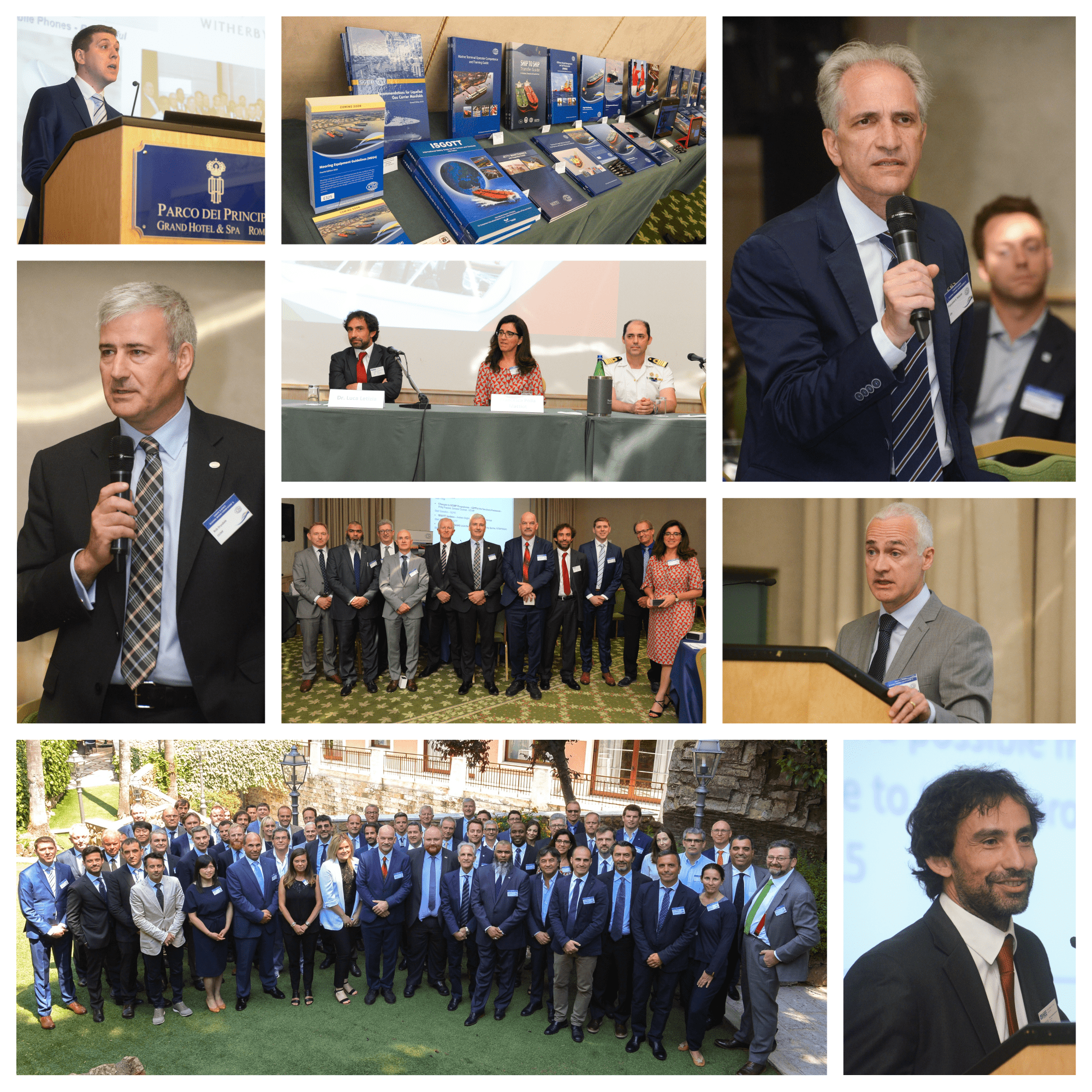
VIQ7 and OVIQ3 release
OCIMF is pleased to announce that the SIRE Vessel Inspection Questionnaire (VIQ7) and the Offshore Vessel Inspection Questionnaire Template (OVIQ3) have been pre-released to members and their IT departments for integration into their vetting systems.
The SIRE Focus Group and OVID Focus Groups have led extensive revisions of both documents, to bring them up to date with changes in legislation and best practices.
Both documents will officially come into effect on Monday 17 September 2018.
For any enquiries, please contact:
On VIQ7:
On OVIQ3:
South America Inland and Coastal Barging Focus Group
The meeting was hosted by Pan American Energy in Asunción, Paraguay on 22–23 May.

This was the ninth meeting of the South and Central America Inland and Coastal Barging Focus Group (SCAICBFG), attended by nine members and one observer from Marine Information Services. The group elected a new co-vice chair, Ricardo Araujo Ramos (Braskem).
The group reviewed:
- SIRE statistics and the effect of improved guidance, provided at the last refresher, on regional inspectors.
- An improved communication strategy for regional inspectors.
- Plans to start a review of the regional Barge Inspection Questionnaire (BIQ).
- A white paper on closed loading.
- Plans for the next regional inspector refresher and other training needs.
- Requests to require Cat 1 inspectors to attend training to be eligible to carry out regional Cat 3 inspections.
Members also discussed wider matters involving South and Central American barge inspections and operational safety.
The tenth meeting is planned for 20–21 November 2018 in Manaus, Brazil and will be co-hosted by Shell and Braskem.

South America Inland and Coastal Barging User Group
This was the first meeting of the user group and was hosted by Pan American Energy at the Sheraton Hotel in Asunción, Paraguay on 22 May, with over 70 attendees.
This meeting was held to give regional vessel operators the chance to learn about SIRE's mission and purpose. Attendees were provided with an overview of OCIMF, its formation and the evolution of SIRE. Details of SIRE’s annual inspection statistics and trends were presented with a focus on the global effort to improve barging safety.
A new numbering schema, OCIMF Vessel Identification, was presented at the meeting. The schema will be trialled by OCIMF and members in the South and Central America region to help operators and members when booking Cat 3 SIRE inspections.
Regional barging issues were also discussed by the SCAICBFG Chair and Vice Chair.
New Human Factors group
OCIMF have formed a new focus group to make sure the latest human factors perspective is applied in OCIMF programmes, publications and other relevant outputs.
The Human Factors Focus Group (HFFG) met for the first time on 26 June to review their terms of reference. They will meet later this year to finalise their goals and objectives and to start work on current OCIMF projects.
OCIMF members can contact OCIMF Deputy Director Sam Megwa with any questions or to express interest in contributing to the work of the group.
News from the IMO
The 42nd session of the Facilitation Committee was held at IMO Headquarters from 5 to 8 June 2018. Below is a summary of some of the key points.
Maritime Single Window
The Committee agreed to adopt a more holistic approach to developing a prototype Maritime Single Window (MSW) system. This will help member governments meet their obligation to create a system for electronic exchange of information during a ship’s port call by 9 April 2019. The MSW will allow all the information required by port/public authorities to be submitted using a single portal, which will increase efficiency and reduce the administrative burden.
The Committee was informed of a plan to automate ship to shore data transfers using existing single window concepts, SafeSeaNet Norway and the SESAME project (Secure, Efficient and Safe maritime traffic Management in the Straits of Malacca and Singapore). There are also MSW projects in Antigua and Barbados.
Electronic certificates
The Committee confirmed announcements by Singapore, Saint Vincent and the Grenadines, the Bahamas, France, Malta, Norway and Portugal to issue electronic certificates to ships under their flag.
FAL.6/Circ.14: List of publications relevant to the ship/port interface
The Committee approved a revised list of publications relevant to the ship/port interface to update FAL.6/Circ.14. All OCIMF publications and information papers that meet the IMO definition of ship/port interface were referenced in FAL.6/Circ.14 for the information of member governments and industry organisations.
Maritime corruption: impact on safety, global trade and port governance
The Committee considered information submitted by the Maritime Anti-Corruption Network (MACN) and a number of other industry organisations and associations on the effects of maritime corruption on safety, security, trade and the efficiency of port operations. The submission was supported by several governments. The Committee agreed that corruption had a significant impact on the image of the maritime industry and ports, and on the facilitation of maritime traffic and security of port operations. It invited Member States and international organisations to submit proposals to FAL 43 on ways of addressing the problem. The MACN was identified as a very valuable platform for businesses to contribute to eliminating corrupt practices.
Day of the Seafarer
The Day of the Seafarer was marked by the IMO on 25 June with a focus on seafarers’ wellbeing, particularly on issues of mental health. Click here to access information on the efforts being made to raise awareness and address the issues of mental health affecting seafarers.
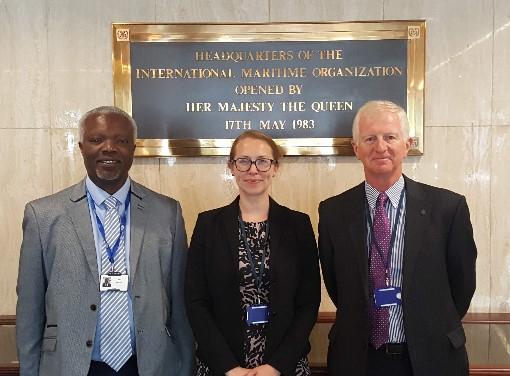
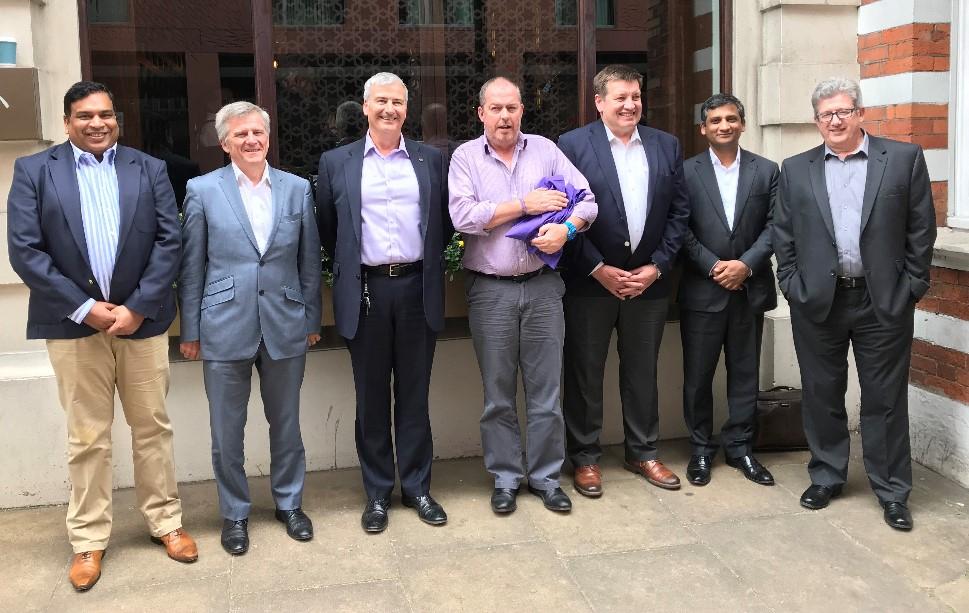
SIRE New Inspector course dates
15–19 October 2018, Singapore 3–7 December 2018, London
All SIRE New Inspector courses will only run if there are enough candidates. OCIMF reserves the right to either change the date or cancel the course if there is insufficient interest. Numbers for the Singapore New Inspector course will be assessed within the next six weeks.
Please ensure SIRE inspector applications are submitted promptly.
For more information on how to register please visit the OCIMF website.


